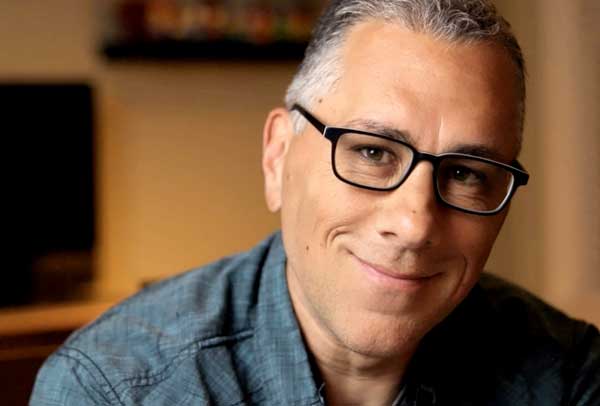Republished with permission from John Pavlovitz
We all live within two stories: the story we tell ourselves about who we are, and the story our actions tell.
As the sickening and intentional myths of Haitian immigrants eating animals in Springfield, Ohio perpetuated by Republican Vice Presidential nominee J.D. Vance engulfed the nation, they revealed with sickening clarity how many professed followers of Jesus have lost the ability or willingness to love their neighbor—at least, not when that neighbor doesn’t resemble them.
Without factual information or quantifiable data of any kind, these supposedly faithful people allowed themselves to be immediately and fully drafted into a violent war on their Haitian neighbors. It took virtually nothing for them to show the darkness of their hearts—and it’s something that sadly, I’ve gotten used to.
I know thousands of people who say they follow Jesus, and I see millions more who I know are just like them.
For the past two and a half decades I’ve pastored them in small rural chapels and in suburban megachurches.
I’ve served alongside them in the streets of Center City Philadelphia and in the tin-roofed slums of Nairobi, Kenya.
I’ve led their teenage children on overseas mission trips and weekend retreats and spontaneous service projects.
I’ve been in their homes and they’ve been in mine.
I know what these people have seen, the work they’ve been a part of, the kindness they’ve shown others, the faith they’ve professed, the God they’ve read and sung about.
Which makes it all the more heartbreaking now, to admit that I no longer recognize them: the venomous words they share on social media, the hateful theology they now ratify, the blatant corruption they turn their heads from, the human rights atrocities they are stunningly silent on, the politicians they brandish on their bumpers.
The only conclusion I can come to is that we were never following the same Jesus—or at the very least we aren’t any longer.
They are following a Jesus who is foreign to me, a Jesus who builds walls, a Jesus who hates his neighbor.
And that breaks my heart because is not the Jesus I shared with them on all those Sunday mornings:
- the one who touched the hand of the leper,
- the one who fed a starving hillside multitude;
- the one who preached the scandalous goodness of a despised Samaritan,
- the one whose family fled political genocide soon after he was born,
- the one who said he and the forgotten prisoner were one in the same,
- the one who dined with both priest and with prostitute,
- the one who lived off the kindness of those he met as he traveled,
- the one who said our neighbors and enemies, deserve the same love we give our families and ourselves.
So many Christians here seem to have no recollection of this Jesus anymore or have willingly discarded him—or maybe they never had interest in him at all and it’s only now that I can see it.
Stranger still, is that these people tell me that I’m wrong; that my Jesus of compassion and gentleness and mercy is one found in spiritual error. They mock me for this Jesus, saying that it is my bleeding heart that has led me far afield; that in seeking such empathy and desiring a bigger table that I have drifted into heresy.
I’m good with that—really good with that.
My Christian faith tradition tells me that love for my neighbor is my great aspiration and calling, but it also tells me that everyone is my neighbor; not just those who speak my language or share my pigmentation or align with my politics or believe in my God or were born where I was born.
I can either see myself as a citizen of the diverse, expansive world that God so loves, or I can make my home in a gated community of people who look, think, talk, and believe like me. The response to the cultivated Conservative lie in Springfield, reminds us that too many folks claiming this same Jesus right now, have settled on the latter.
I am going to take my chances with a wall-breaking, table-making Jesus.
I’m going all in with a Jesus who errs on the side of loving people, of welcoming them, healing them, and embracing them.
I’m betting that the carpenter Jesus, would have me make tables and set a banquet for every hungry, hurting, exhausted person who crosses my path, without caveat or condition.
I will not worship or preach or serve a Jesus who builds walls, one whose ministry is one of separation and disconnection and segregation.
I have no use for a white privileged, gated community Christ, whose only concern is white America.
I have no interest in a religion that manufactures outsiders based on their nation of origin, sexual orientation, pigmentation or any other inherent part of who they are.
These Christians I’ve known in close proximity and the ones I’ve seen from a distance, the kind who fanned the flames of prejudice in Springfield instead of fighting for the worth of the Haitian people there, are welcome to this God.
They can have a Jesus who erects walls, incites violence, and worships whiteness.
I’ll stay outside here with my Jesus, setting tables, breaking bread, and loving all my neighbors.

John Pavlovitz
John Pavlovitz is a writer, pastor, and activist from Wake Forest, North Carolina. A 25-year veteran in the trenches of local church ministry, John is committed to equality, diversity, and justice—both inside and outside faith communities. When not actively working for a more compassionate planet, John enjoys spending time with his family, exercising, cooking, and having time in nature. He is the author of A Bigger Table, Hope and Other Superpowers, Low, and Stuff That Needs to Be Said.
